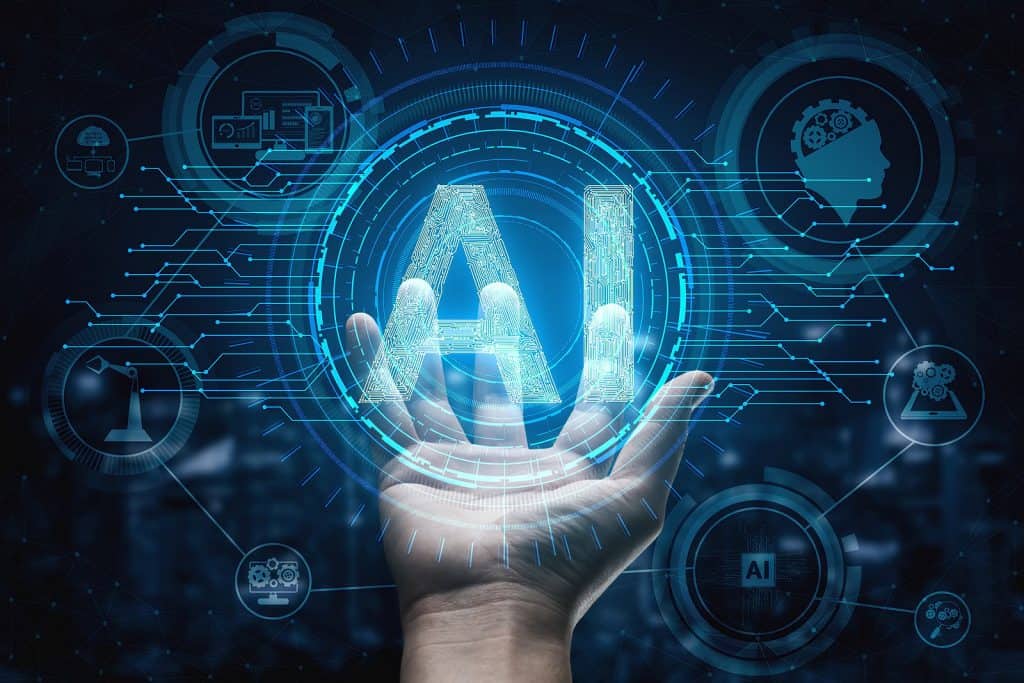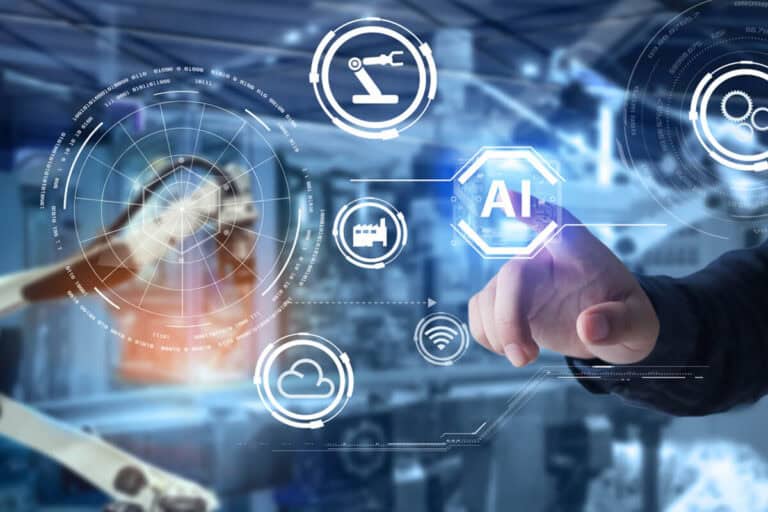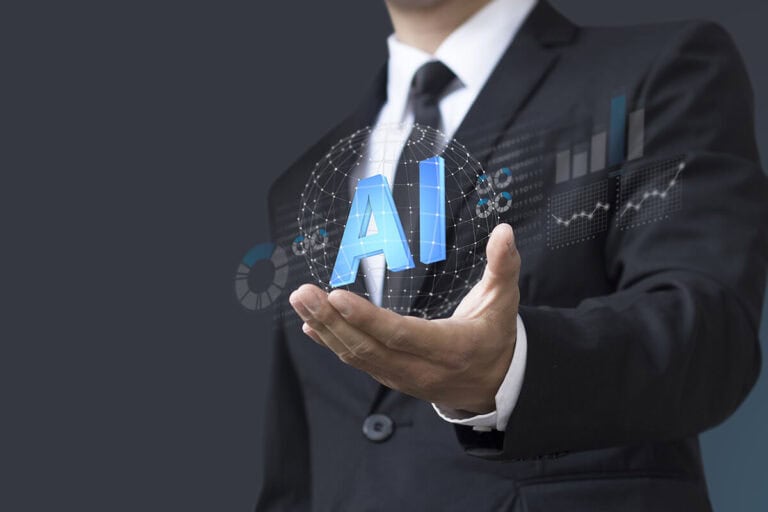What is artificial intelligence? In computer terms, it’s the programming and development of machines and systems capable of using and interpreting information in a manner similar to the activities of a human. AI technologies are able to understand, analyze, and learn from data through specially designed algorithms, which are complex mathematical formulas and operations.
Table of Contents
ToggleThere are various fields of artificial intelligence. Machine learning or ML, for example, is the ability of a machine to improve its performance via algorithms that work on previous results or interactions with the system. This allows ML technologies to learn without being explicitly programmed and to have multiple applications.
Other types of artificial intelligence include deep learning, a branch of machine learning that employs sophisticated artificial neural networks inspired by the human nervous system to learn from data that doesn’t need to be structured (unlike machine learning), and natural language processing (NLP), a linguistic tool enabling machines to read and interpret human language.
What Can AI Do?
What can AI be used for? One of the broad goals of artificial intelligence is autonomous machine intelligence, with machine learning being one of the specific scientific methods used in constructing AI.
Through autonomous machine intelligence, computers, mechanisms, and systems powered by AI could take much of the burden of decision-making, repetitive action, and instantaneous response away from humans, leading to greater efficiencies and performance improvements at all levels. This is one of the more optimistic visions of how artificial intelligence will change the future. We’re still a way off from achieving this level, and there are safety, ethical, and practical considerations to deal with before it becomes a workable reality.
What is AI used for in its present form? Currently, the artificial intelligence we have is weak or narrow AI — systems designed to perform specific tasks without human intervention, and with a limited range of autonomy in the way they go about it. But even at this level, there are numerous
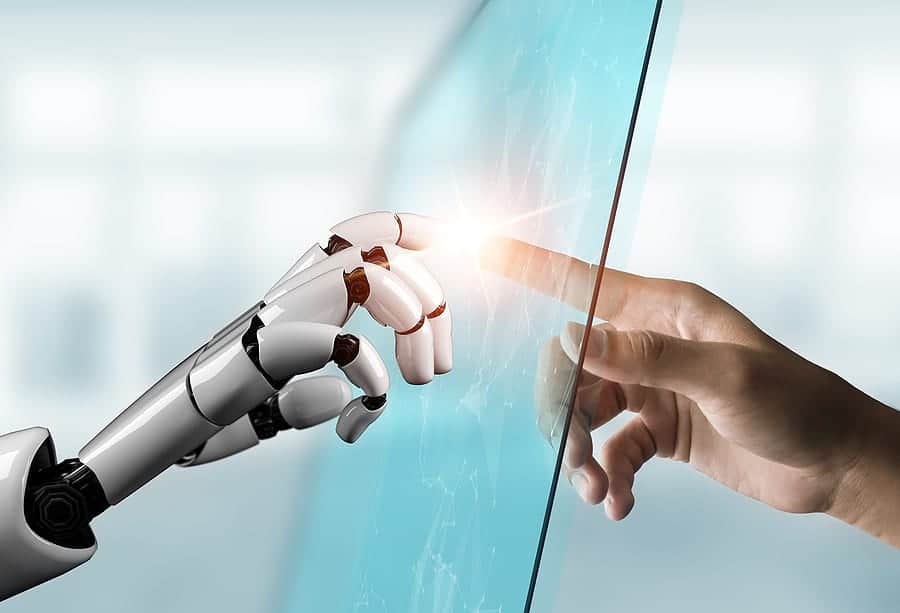
AI capabilities that are being exploited, such as the ability to sift through vast amounts of data and make logical connections between past actions and different criteria. You may have found your way to this web page through a search engine, for example. That process was powered by artificial intelligence.
Other examples of artificial intelligence at work include:
- Personalization of news feeds and automatic recognition of similar features in images on social media.
- Product searching and recommendations on eCommerce platforms.
- Voice-to-text conversion on smartphones and the use of artificial neural networks to power voice search.
Machine learning examples include the following:
- Email and message system spam filtering, which uses algorithms to learn from a variety of signals, such as pre-set rules, the words in the message, and message metadata (information about the message, such as time and location stamps).
- Smart categorization of email, like the way that Gmail separates messages into Primary, Promotional, or Social inboxes.
- Grammar and spelling checkers in word processing and educational application platforms.
- Automated decision making for online credit applications.
- Fraud detection and prevention for financial systems.
Where Is AI Used?
These artificial intelligence examples merely scratch the surface of the volume of applications of AI today. The technology is currently deployed in numerous sectors, including transportation, manufacturing, finance, health care, education, and urban planning.
In transportation, for example, systems like Google Maps can analyze the speed of traffic movement at any given time, incorporating on-the-spot reports of traffic incidents like construction work or accidents.
Predictive and preventative maintenance systems in the manufacturing industry are helping product makers to avoid costly downtime, while the incorporation of AI into quality control mechanisms enhances production.
We’ve already observed that machine learning is assisting financial organizations in detecting fraud. AI and ML also play a role in payment processing, mobile check deposit, insurance, and the recommendation of investment options.
Artificial intelligence devices and smart connected systems are enhancing the delivery and administration of health care in numerous ways, such as remote diagnostics and telemedicine.
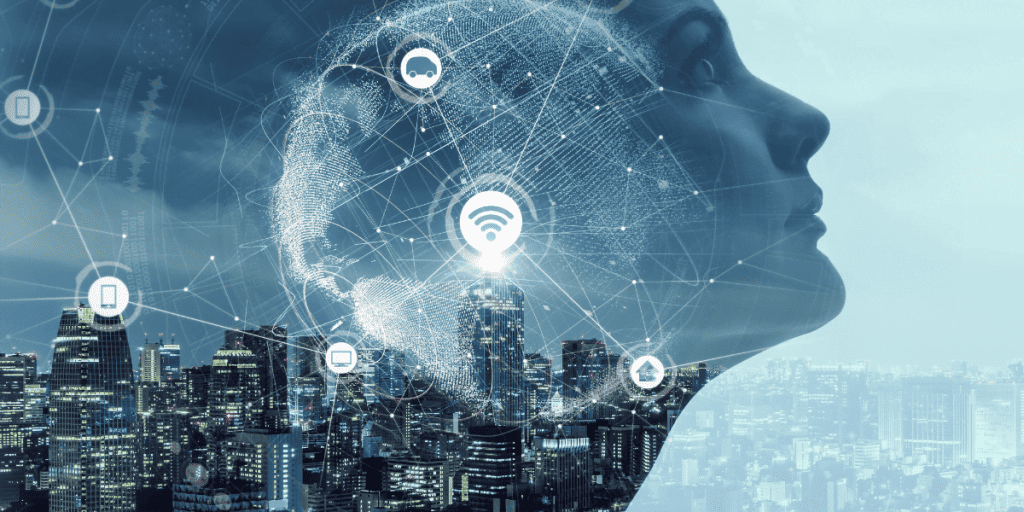
Automated document reading, grading, and plagiarism checking powered by artificial intelligence are helping to ease the work load of educators, and providing an additional viewpoint to that of human instructors.
At the urban level, an evolving set of “smart city” technologies are beginning to live up to their promise of optimizing utilities provision, traffic control, waste management, and other essential services.
Social Implications of Artificial Intelligence
These various applications provide ample evidence of artificial intelligence benefits to society. AI for social good is a rallying cry for those who stress the value of artificial intelligence as the driver of emerging technologies like big data, robotics, and IoT (the Internet of Things), and as a medium for technological innovation in the foreseeable future. AI optimists also view the technology as a vehicle for job creation, with improved efficiencies freeing up skilled labor to work in new areas, and new fields of employment being generated by the support structure needed for AI itself.
Such views on how is AI used must, of course, be balanced with caution over the potential for artificial intelligence to be mishandled or abused and the unpredictability of the technology if its evolution proceeds without the necessary safety checks and balances.
Companies Using Artificial Intelligence
What can AI do in the commercial sphere? Companies, both large and small, are using artificial intelligence to enhance their operations and to gain an edge over the competition. They include:
Materialise
Belgium’s Materialise is a provider of 3D printing, software, and engineering services that also offer artificial intelligence devices and systems to various industries. For instance, the company’s SurgiCase platform allows doctors to upload a patient’s medical imaging data to a Materialise engineer, who can then use an AI algorithm to help surgeons plan their operating procedures.
Both a social sharing platform and one of the world’s leading artificial intelligence companies, Pinterest uses AI technology which can identify more than 2.5 million objects in photos, making these items instantly available for sharing and social commerce.
Salesforce
The Salesforce Customer Relationship Management (CRM) platform now incorporates Einstein, an artificial intelligence layer that allows its users to sift through all of the data points for all of their customers and extract valuable insights, or for example, to use algorithms to drive or support dynamic pricing decisions.
Splunk
Based in San Francisco, Splunk focuses on machine learning, with a Data-to-Everything platform that helps clients turn their information into profitable business decisions. The company’s stock is currently trading at over $120.
Where is AI Used Today? In Artificial Intelligence Software
One of the principal enabling media for applications of AI is artificial intelligence software — computer programs that use various mechanisms and tools to simulate human-like behavior through learning from various data patterns and insights.
There are four main types of AI software:
- Artificial Intelligence Platforms: These provide tools and environments for developing AI software, such as built-in algorithms, templates, and drag-and-drop facilities.
- Chatbots: Conversational AI programs that achieve the effect of realistic and real-time dialogue with users.
- Machine Learning Software: A general class of programs that can learn from data and previous interactions with the software.
- Deep Learning Software: Programs that perform speech recognition, image recognition, and other complex functions, based on sophisticated algorithms.

AI software examples from the business and consumer markets include the following artificial intelligence applications:
Cortana
A private digital assistant built for the Microsoft Windows platform, which helps users organize and implement their daily routine, and provides standard web searches for information. Cortana includes over one thousand apps and services.
Google Assistant
An artificial intelligence platform and personal assistant capable of searching the internet, scheduling events and alarms, correcting hardware settings on a user’s device, checking weather or current events, and displaying information from a user’s Google account.
H2O.AI
H2O.AI is an artificial intelligence and machine learning platform that companies can use to identify potential scams. The platform includes tools for building AI applications and counts Cisco, PayPal, and Progressive among its customer base.
Masdima
Masdima combines leading software engineering methods with artificial intelligence and machine learning paradigms and techniques to help businesses minimize the impact of disruption on their everyday operations and processes.
Sisense
Sisense is one of the few examples of industry-focused big data management software using AI today. The software provides end-to-end explanations and tutorials for handling a range of unstructured and structured data sets from multiple sources. Sisense provides a drag-and-join interface that enables users to easily create and manage complex data models.
Summary:
Where is AI Used Today
These artificial intelligence examples merely scratch the surface of the volume of applications of AI today. The technology is currently deployed in numerous sectors, including transportation, manufacturing, finance, health care, education, and urban planning. In transportation, for example, systems like Google Maps can analyze the speed of traffic movement at any given time, incorporating on-the-spot reports of traffic incidents like construction work or accidents. Predictive and preventative maintenance systems in the manufacturing industry are helping product makers to avoid costly downtime, while the incorporation of AI into quality control mechanisms enhances production. We’ve already observed that machine learning is assisting financial organizations in detecting fraud. AI and ML also play a role in payment processing, mobile check deposit, insurance, and the recommendation of investment options. Artificial intelligence devices and smart connected systems are enhancing the delivery and administration of health care in numerous ways, such as remote diagnostics and telemedicine. AI in education today Automated document reading, grading, and plagiarism checking powered by artificial intelligence are helping to ease the work load of educators, and providing an additional viewpoint to that of human instructors. At the urban level, an evolving set of “smart city” technologies are beginning to live up to their promise of optimizing utilities provision, traffic control, waste management, and other essential services.

